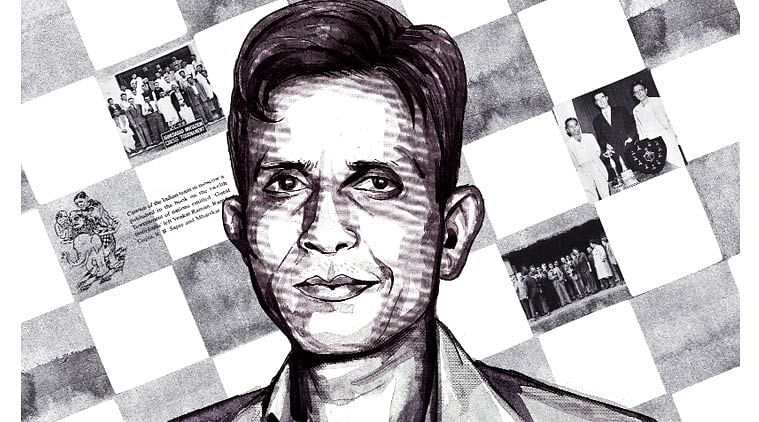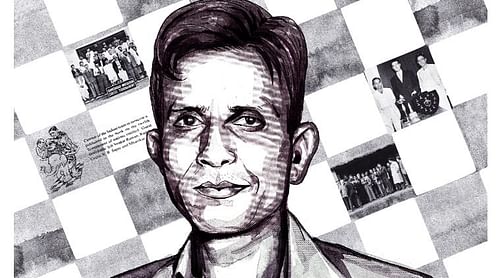
A tribute to R.B. Sapre - India's first national chess champion

Think of the game of chess and the first name that comes to our mind is Viswanathan Anand, who became India’s first grand master in 1988. Many people call this is as the turning point in the history of Indian chess and without an iota of doubt it was indeed a big moment for us. Since then, India has produced 46 grandmasters.
But long before Anand was born, a certain R B Sapre from the small city of Ratnagiri in Maharashtra was making rapid strides in Indian chess. He became country’s first national champion along with D Venkayya in 1955 and continued his good performances in nationals for close to two decades.
A great Chess Analyst
Apart from being a very good player, Sapre was brilliant in analysing the game. A year before he was crowned the national champion, Sapre was invited by Russia in 1954 to witness the Vasily Smyslov - Mikhail Botvinnik World Championship match.
This was no mean feat at that time for an Indian chess player. And the basis of this invitation were the numerous letters containing analysis’ of international games which he used to send to Russian magazines.
Till recently, sports was not looked upon as a career option in India, so one can imagine how difficult it would have been for Sapre to make a living from the game of chess. He used to work with a pharmaceuticals company but his love of chess ensured that he couldn’t spend much time away from the game. As a result he also used to teach chess in Bombay’s (now Mumbai) Ruia College and was also a regular chess columnist for Indian Express.
In fact, if old timers are to be believed; the front room of his house was a chess hub for enthusiasts in Bombay. Many players of his generation give credit to him for bringing the game of chess from royal palaces to the chawls of Bombay.
His wife Sudha who once told Manuel Aaron (first Indian to be awarded the International Master title), “If I lay dying he would not do anything but say it is natural for everybody to die. But if his knight was trapped on the board he would tear out his hair trying to save it”. This just goes on to show the way he used to get engrossed in chess and it won’t be an exaggeration to say that his life was centred around the 64 squares of the chess board.
Sapre’s story needs to be passed on to future generations
It is interesting to note that chess or chaturanga as it was called then is believed to have originated in India in the Gupta empire in the 6th century. Modern day chess has undergone many transformations since then. Along with these transformations, I think we Indians had forgotten that we were the ones who had introduced the game of chess to the world before the likes of Sapre came to the fore.
Much like we Indians forgot that we were the founders of the game of chess, it is indeed sad that we seem to have forgotten the games first national champion R.B. Sapre as well. This year being Sapre’s centenary year, I sincerely hope that the All India Chess Federation (AICF) pays some sort of homage to Sapre because inspirational stories like his need to be told to the future generations.
Though, a tournament (Late R.B.Sapre Memorial FIDE Rating Open Rapid) was organised last month in his home town Ratnagiri to commemorate his centenary year, it failed to attract the mainstream media and I believe a person of his stature deserves better.
But these are just my views and I could be totally wrong because if people from his family are to be believed, Sapre was a very simple man who never tried to gain commercially from the sport. So, he might have actually been happy with a low scale tournament where the focus was on the knights and pawns rather than on him.